
Everything You Need To Know About Couples Counseling
No relationship is perfect and every couple fights. However, for some, the fights take a turn for the ugly and someone needs to step in to help the couple work through the messy bits.
Couple's counseling seems daunting but it could be a saving grace for a couple who aren't seeing eye to eye. Here are some things to keep in mind when considering therapy.

Shutterstock
How Does Counselling Work?
Relationship counseling involved both partners attending sessions. This allows the therapist to find a balance and avoid forming any bias.
Counseling sets clear boundaries and rules including time limits to protect both patients so that everyone feels safe to open up. It is advised to be consistent with sessions as it allows the couple to become comfortable and truly participate in sessions.
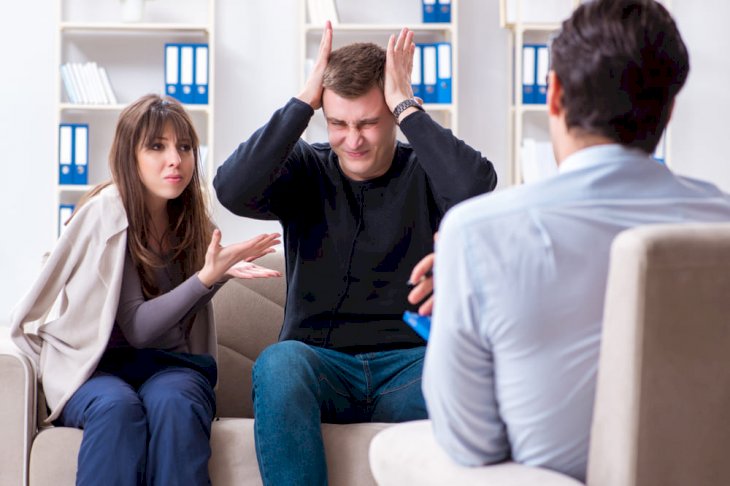
Shutterstock
Benefits Of Couple's Counselling
"Counselling makes you think about your mental health and emotional wellbeing. It also helps you plan a better future for yourself, get meaning from your life, and to be better at dealing with your every day."
says Simone Bose, an expert Relate counselor.
It is important however that the couple goes into therapy with an open mind. Results are not instant and the couple needs to be willing to push through the hard parts to fully appreciate the benefits of therapy.

Shutterstock
A good tip to get the most out of each session is to write notes about the things you feel you want to discuss in the session. Having a plan will help you focus and allow you to refer back to your notes so you don't miss anything that is bothering you.
"It’s important clients have as much as an input as the counselor, so going in and expecting the counselor to do all the work is not the right attitude. The counselor can only do so much, and you have to come halfway. Get used to the idea that it’s all about you."
says Simone Bose, an expert Relate counselor.
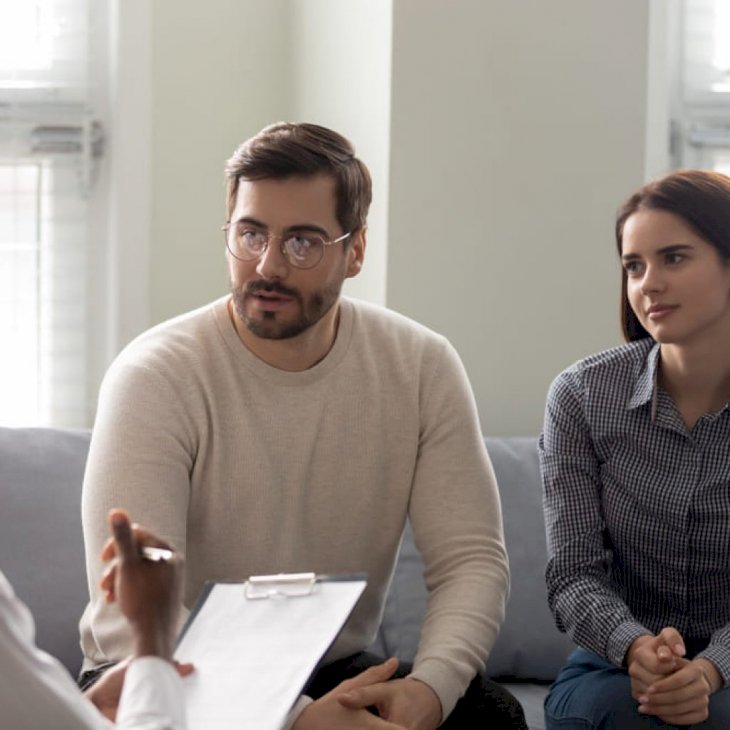
Shutterstock
Questions That Will Be Asked
Be prepared for questions that will make you feel uncomfortable. Common questions include "Why have you come? What’s made you come now over any other time? What’s the trigger?"
It is also common that you will be asked for family history and background of your relationship. There may also be questions about your childhood as well as private information about your sex life.

Shutterstock
This is especially important if you are both experiencing a sexual problem. The therapist may even offer sex therapy if issues such as pain during intercourse, loss of desire, or premature ejaculation are identified.
"When you come with your initial issue, it may be quite superficial and not a sexual issue. As you get deeper into counseling, a sexual issue might come up as you discuss this. Maybe a few sessions in you may feel ready to talk about it by then because you have to feel trust with the counselor and comfortable. And once you get used to talking about one thing, it may naturally lead to that topic. You may find it’s connected with the other issues."
explains Simone Bose, an expert Relate counselor.
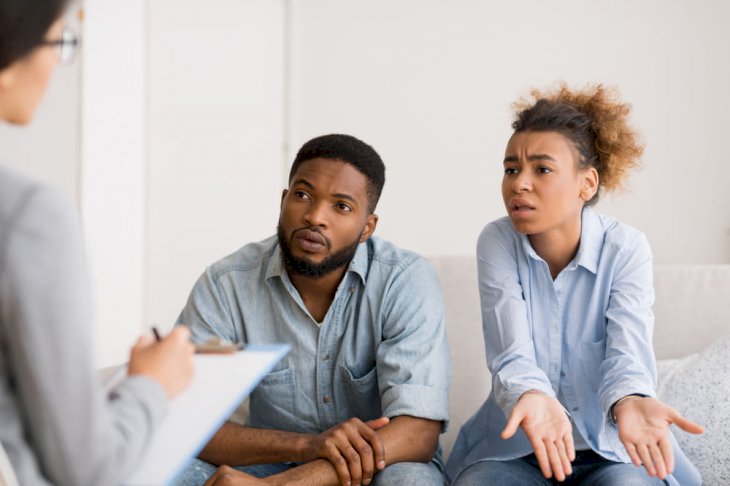
Shutterstock
No Sides To Choose
If you are expecting the therapist to verify your argument or take your side, you're in for a shock. The therapist or counselor will remain neutral throughout sessions.
"It’s not our role to tell someone they’re bad. Our role is to explore why people are the way they are. Rather than blaming somebody, we get to the core of what’s happening and the thought process behind their actions. We encourage our clients not to blame each other, as that type of language doesn’t help and just makes people have their defenses up."
says Simone Bose, an expert Relate counselor.
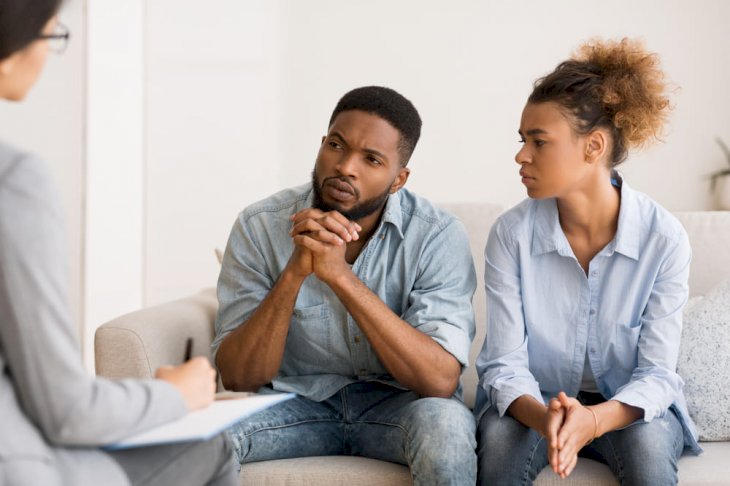
Determining If You Need Counselling
Identifying if you need a counselor depends on each couple. If you feel you have developed a "negative patterns of communication" or have started simply avoiding issues instead of addressing them it might be worth considering counseling.
However, other times it is much clearer as the issues are more glaring. Many times couples where one spouse has been caught cheating will opt for counseling to try to salvage their relationship.
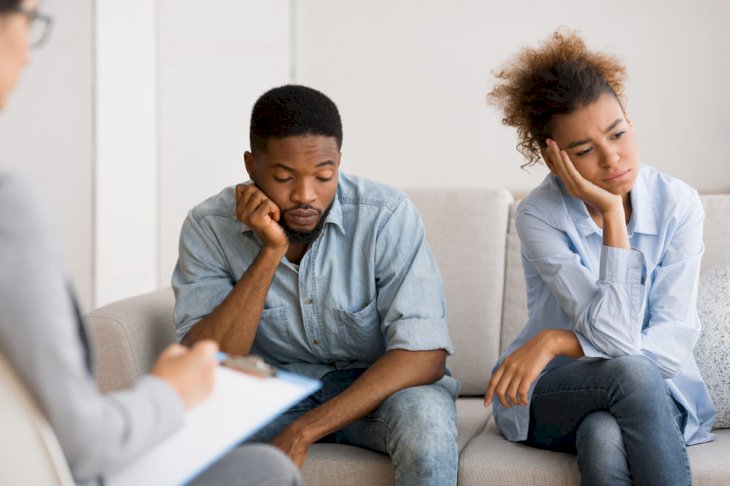
Shutterstock
Picking A Relationship Counselor
If you have decided counseling might be for you, then it is time to pick a counselor. If you have a specific problem, look for specialists who focus on that specific need.
Another great way to find a good therapist is to ask for a reference from a GP. Remember that is important for both of you to feel comfortable with the therapist you choose.